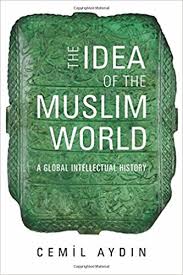 I’m reading a book titled The Idea of the Muslim World: A Global Intellectual History. It’s works within the postcolonial framework. Unlike a lot of postcolonial scholarship it isn’t bluster and rhetoric riddled with basic historical errors. The author presents a lot of interesting facts. But, as I’ve said elsewhere I disagree with the thesis of the book, which is that modern Islamic identity can be understood primarily through its interaction with European colonialism.
I’m reading a book titled The Idea of the Muslim World: A Global Intellectual History. It’s works within the postcolonial framework. Unlike a lot of postcolonial scholarship it isn’t bluster and rhetoric riddled with basic historical errors. The author presents a lot of interesting facts. But, as I’ve said elsewhere I disagree with the thesis of the book, which is that modern Islamic identity can be understood primarily through its interaction with European colonialism.
This isn’t to say colonialism doesn’t matter. It does matter. It’s just that Muslims are not inactive substrate upon which European agents operate. Muslims, and Islam as a civilization, has its own life, orientation, and self-conceptions, which exist somewhat apart from Europeans, and the West (I say somewhat because it is hard to understand the modern West and Islam without their coevolutionary dance over the centuries). Colonialism did not create the idea of the Muslim world de novo, it operated upon the idea of the Ummah which predated the modern West, and in fact emerged in tension with the ancient late antique Near East and Turan in the 7th and 8th centuries AD.
But this post is not about Islam. From the comments:
The big tragedy during the unmitigated disaster that was the partition upon the Hindus, many realized was that while there was a thing known as Ummah, there was no such thing as the Hindus. There are Muslims, but they are actually the largest plurality. There was no such thing as the Hindus. There was the Brahmins. There was the Namashudra. There was the Punjabi. There was the Thakur…
This to my mind is a much stronger position to defend than the ideas above in relation to Islam. To a great extent modern day, Hindu nationalism seems to be about creating an analog to the Dar-ul-Islam and Christendom for Hindus, many centuries after Muslims and Christians. But, I do think I disagree with this. It seems clear that Megasthenes, al-Biruni, and Faxian all had a sense of Indians, or Hindus as we were all called then, as a distinct, albeit variegated, people.
Hinduism as a particular confession with a creedal orientation is a relatively recent affair. Perhaps you can date it to Adi Shankara. Or even as late as Arya Samaj. That doesn’t matter. Hinduism as a distinctive civilization of Indians, with consistent particular unifying beliefs, is very ancient and dates to antiquity.
One might object that this only applies to the twice-born varna. But the Maurya were like of sudra origin. And South Indian polities welcomed Brahmins, who they clearly saw as part of their civilization, albeit different and apart.
Of course one might change the goalposts with some semantics. I myself liked to be clever and would say that Hinduism was invented by Muslims or Westerners a few years ago. But thinking more deeply, I think that that was just a stylistic pose by me, attempting to burnish my heterodoxy, as opposed to reflecting the first order substance.
Addendum: Genetics is now making it clear to me that the matrix of “Dravidian” and “Indo-Aryan” proto-India were closely connected and emerged around the same time, probably in tension, conflict, and interaction. Religious ideas we’d term “Hindu” probably didn’t exist 4,000 years ago, but the openness of South and North India to engagement and cultural exchange in the historical period is not I think coincidental, but reflects primal commonalities derived from the tumult in the centuries after the decline of the IVC.